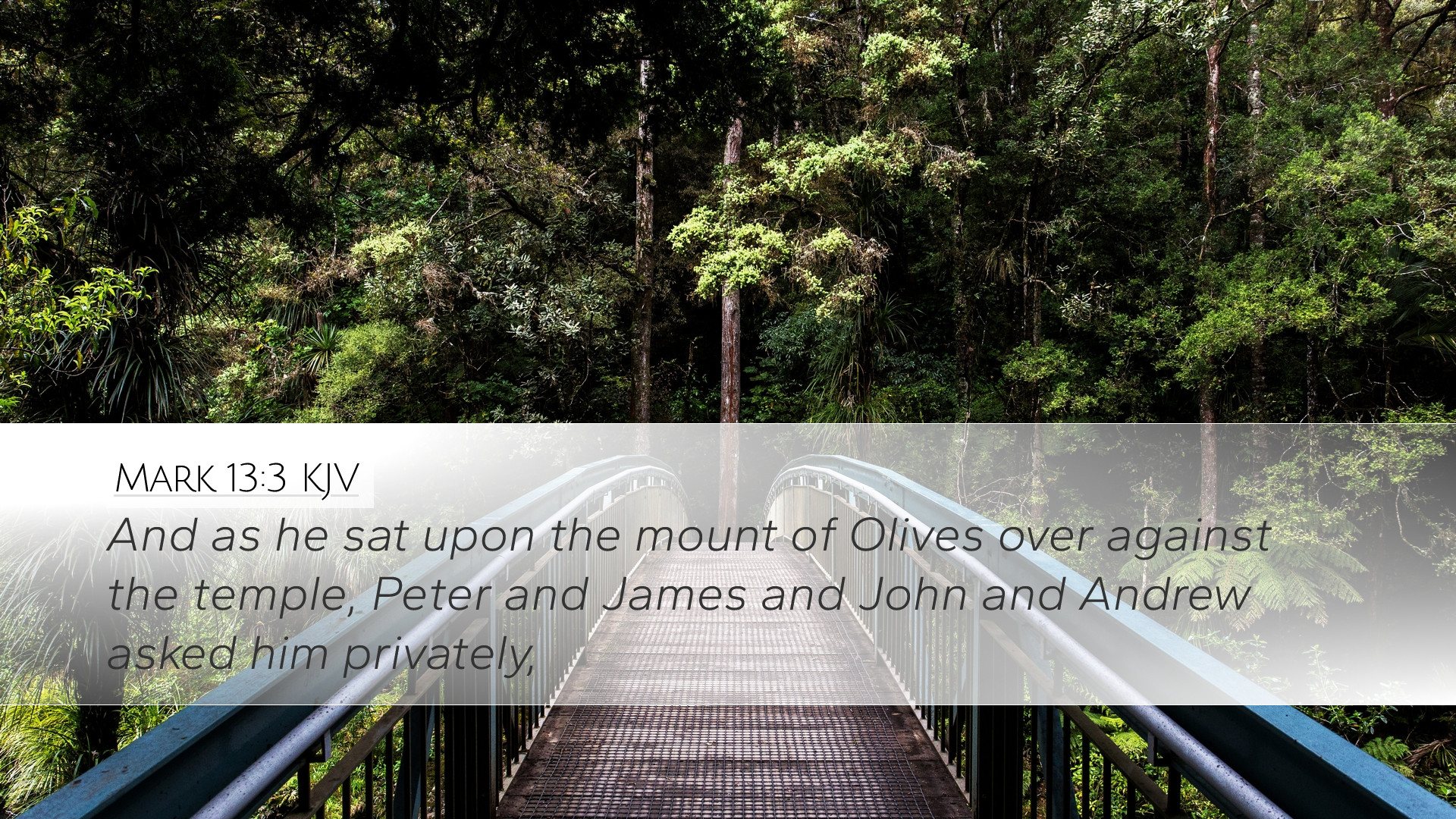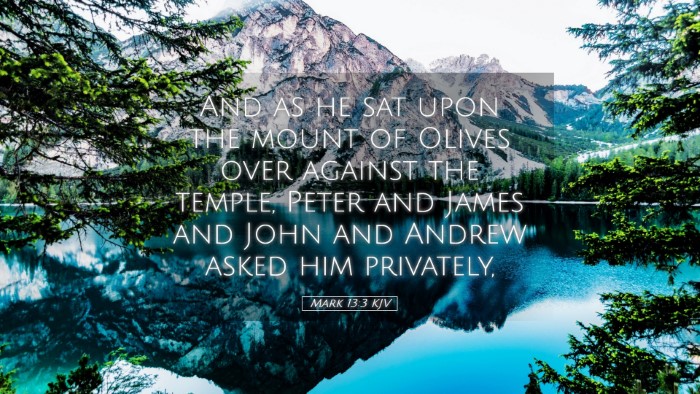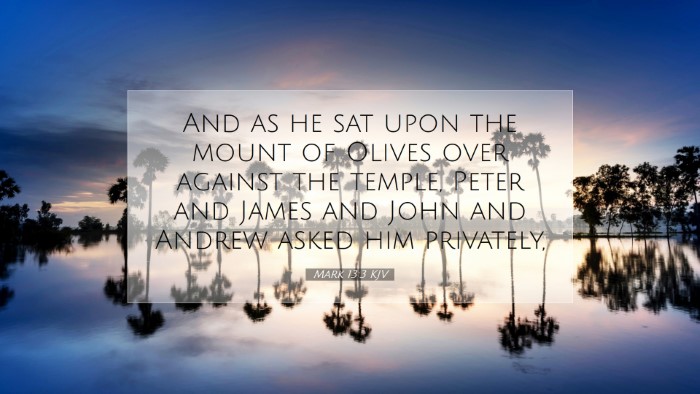Commentary on Mark 13:3
Verse Context: Mark 13:3 states: "And as he sat upon the mount of Olives over against the temple, Peter and James and John and Andrew asked him privately." This verse sets the stage for a significant discourse where Jesus speaks about future events, particularly concerning the destruction of the temple and the end of the age.
Setting the Scene
This passage takes place on the Mount of Olives, a location with profound significance both in the context of Jewish history and in the life of Jesus. The temple, standing in view, was the epicenter of Jewish worship and identity. Jesus had just prophesied its destruction, which would have been shocking to His close followers.
Insights from Public Domain Commentaries
Matthew Henry's Commentary
Matthew Henry emphasizes the importance of the Mount of Olives as a place of teaching and revelation. He notes the contrast between the solemnity of Jesus’ predictions and the confidence of the disciples. The question from Peter, James, John, and Andrew indicates their desire for clarity on the future, which reflects a deep-seated concern for their own safety and understanding of God's promises.
- The Inquiry: Henry points out that the disciples’ inquiry was not merely for knowledge but stemmed from a genuine desire to understand the times.
- Private Teaching: The privacy of their conversation highlights that the truths Jesus imparts are often reserved for those who seek them earnestly.
- Significance of the Mount: The location itself is symbolic—Jesus would soon ascend from here, and the Mount would become a place of prophecy and expectation.
Albert Barnes' Notes
Albert Barnes focuses on the disciples’ response to Jesus' statement regarding the temple's destruction. He remarks that their inquiry is not just about the “when” but also about the “what” and “how” these events will unfold. This conforms to the human instinct to seek reassurance amid foreboding declarations.
- Disciples’ Curiosity: Barnes suggests that their questions reveal a lack of understanding that Jesus’ kingdom was not to be defined by their expectations of the temple or its physical structure.
- Imminence of Events: He points out that the disciples had yet to realize the spiritual nature of the impending changes which Jesus was about to elucidate.
- Proximity to Judgment: This moment marks a transition where the impending doom of Jerusalem parallels the hope of salvation for believers, which will be fully explained as the discourse continues.
Adam Clarke's Commentary
Adam Clarke offers an in-depth exploration of the theological implications of this verse. He underscores the earnestness of the disciples' question, highlighting their struggle to reconcile Jesus' identity as the Messiah with His forewarnings about destruction.
- Expectation vs. Reality: Clarke notes that the disciples were still clinging to the hope of a political Messiah, which made Jesus’ prophecies difficult for them to comprehend.
- Symbolism of the Temple: He elaborates on the temple as a metaphor for the old covenant and how its destruction forecasted the opening of a new covenant through Christ’s sacrifice.
- The Blessing of Questioning: He emphasizes the importance of questioning in the journey of faith—encouraging pastors and theologians to create spaces for such inquiries within their ministries.
Theological Implications
The inquiry of the disciples not only reveals their ignorance but also their willingness to engage with Jesus على مستوى أعمق, a pattern that continues throughout Christian discipleship today. This passage stresses the importance of understanding prophecies within the larger narrative of salvation history.
Lessons for Today
This passage has profound implications for modern practitioners of the faith:
- Seeking Understanding: Much like the disciples, believers today are called to seek clarity and understanding in their faith journeys—transforming curiosity into deep engagement with Scripture.
- Community Inquiry: Pastors and leaders are encouraged to embrace questions as vital components of faith development, demonstrating that faith and doubt can coexist.
- Hope in Destruction: The message of hope amidst tragedy is a continual theme in Christian theology, especially as believers navigate their own experiences of loss and uncertainty.
- Scriptural Prophecy: Understanding prophetic Scriptures encourages believers to see God’s sovereignty and plan throughout history, fostering confidence in God's ultimate purposes.
Conclusion
Mark 13:3 serves as a critical juncture for understanding Jesus’ ministry and the implications of His prophetic teachings for His followers. The questions raised by the disciples reflect a longing for understanding that believers today continue to share in their quest for meaning in the face of life’s uncertainties. Engaging with this text not only informs theological discussions but invites believers into a deeper relationship with Christ, characterized by both inquiry and revelation.


